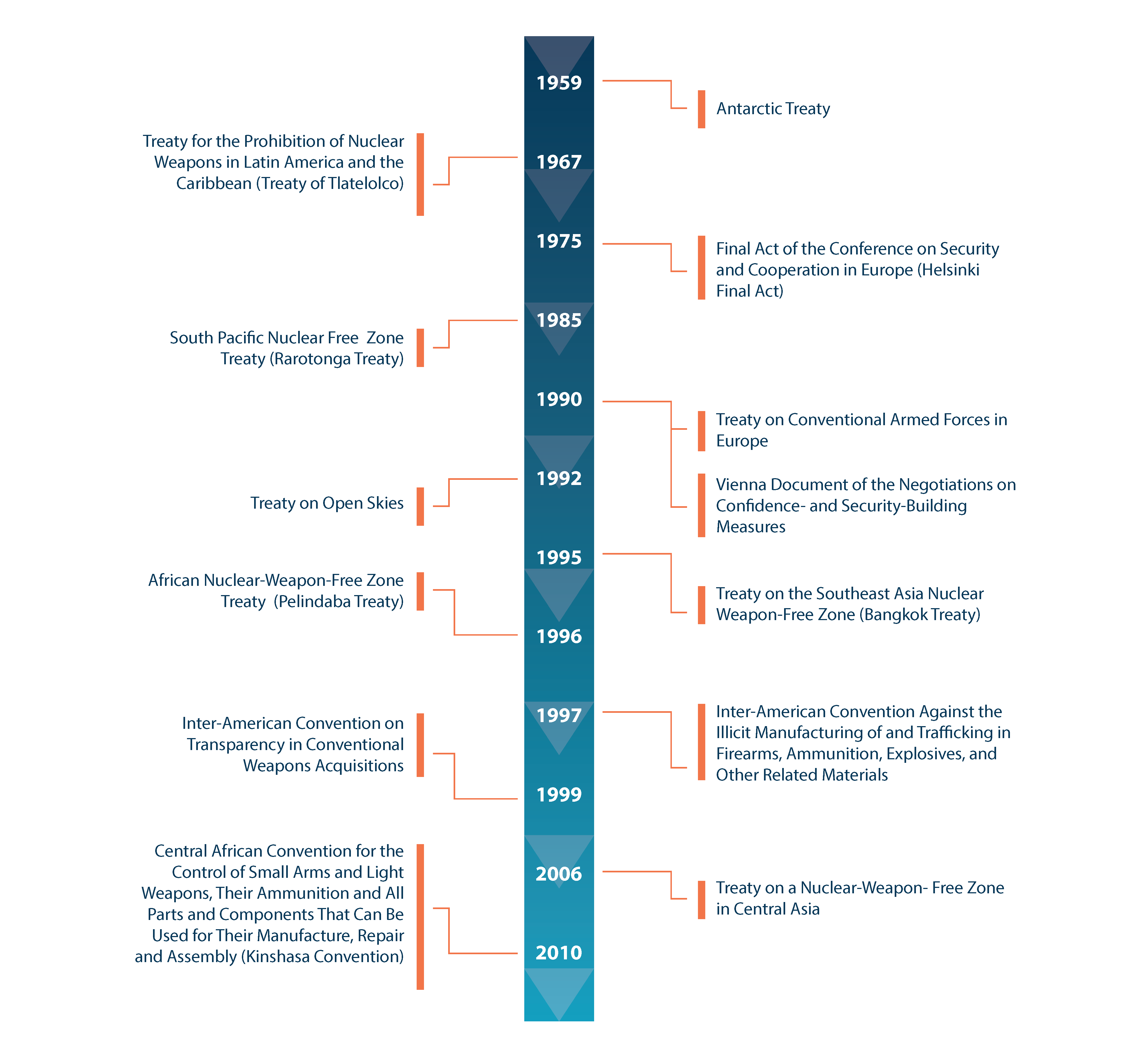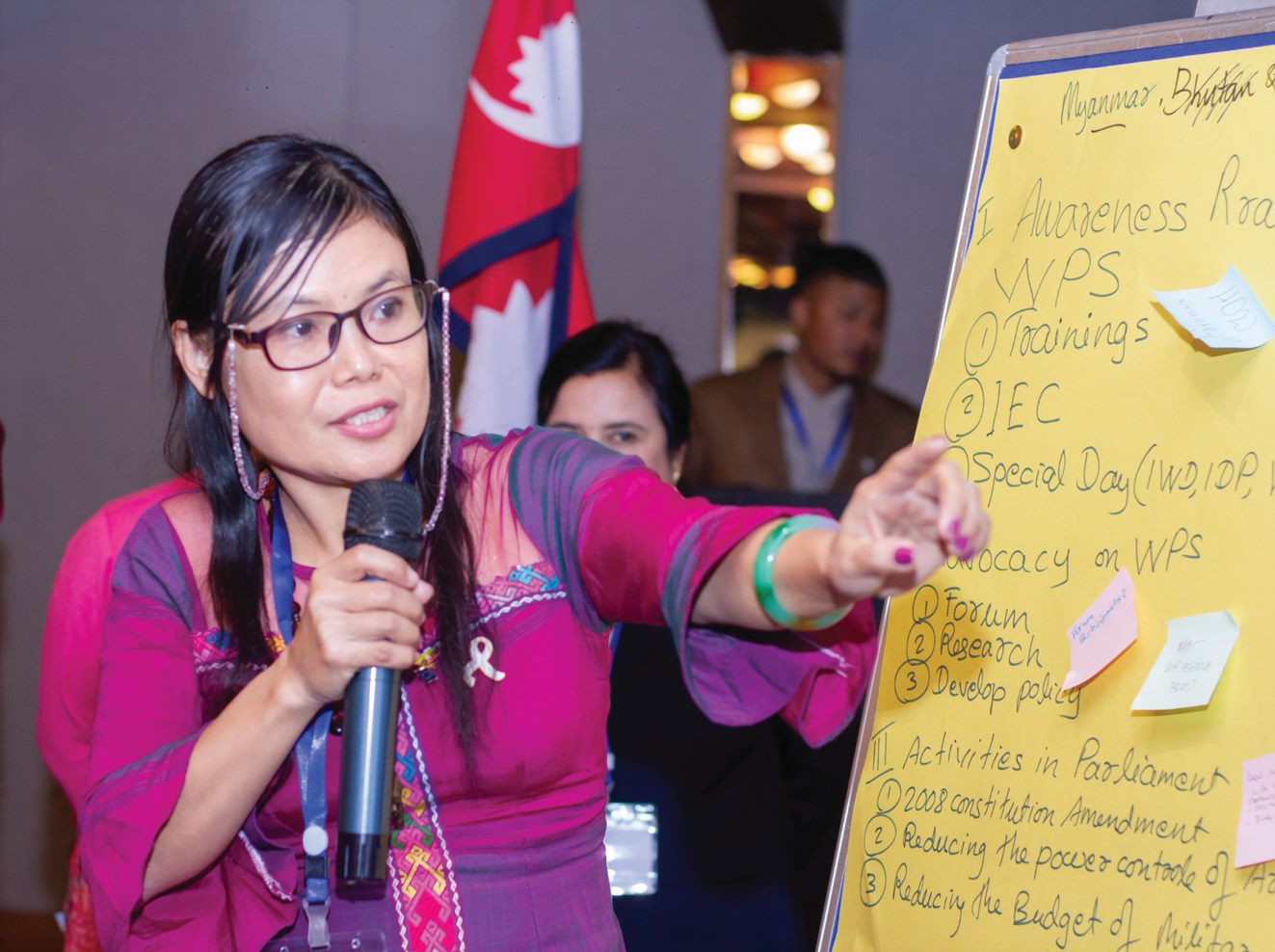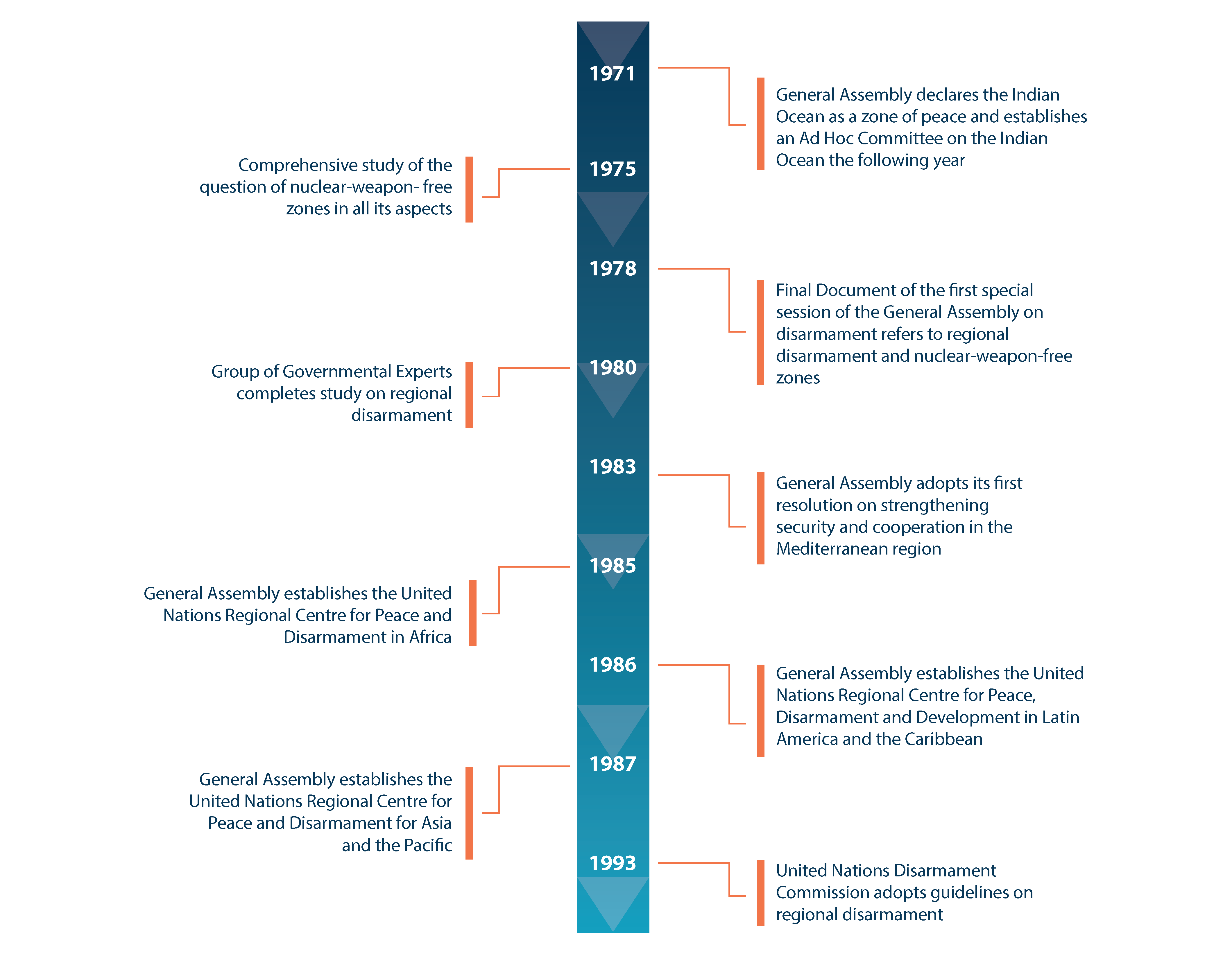Despite the restrictions posed by COVID-19, the three regional centres for peace and disarmament quickly adapted to ensure the uninterrupted implementation of their activities in support of Member States in their respective regions.
The COVID-19 pandemic posed an unprecedented challenge to all regions of the world in 2020, leading to restrictions on travel and in-person interaction that disrupted a wide range of regional activities for disarmament, non-proliferation and arms control. Yet regional and subregional efforts to advance international peace and security continued—the United Nations used virtual and hybrid methods to engage, coordinate and facilitate cooperation among States, regional and subregional organizations, relevant international organizations and civil society. As a result, many dialogues, capacity-building projects, information campaigns and other activities in the field of disarmament could proceed during the pandemic.
The global security environment continued deteriorating, however, with persistent tensions among major powers introducing further geopolitical complications at the regional and subregional levels. Total global military expenditure increased to almost $2 trillion, representing the largest year-on- year increase in military spending as a share of gross domestic product since 2009. Although military expenditure fell in South America and the Middle East, it rose in Asia and the Pacific, North America, Europe and sub-Saharan Africa.
More hopefully, significant progress was attained at the regional and subregional levels, with growing adherence by Member States to multilateral treaties and regional conventions.

In the field of weapons of mass destruction, 21 States ratified, acceded to or signed the Treaty on the Prohibition of Nuclear Weapons during the year. In Africa, five States ratified the Treaty and four signed it. In Asia and the Pacific, four States ratified and one acceded to it. In addition, five Latin American States and two Western European States ratified the Treaty. Separately, Cabo Verde ratified the African Nuclear-Weapon-Free Zone Treaty in February, while Saint Kitts and Nevis acceded to the International Convention for the Suppression of Acts of Nuclear Terrorism in August. In September, Bosnia and Herzegovina acceded to the Treaty on Principles Governing the Activities of States in the Exploration and Use of Outer Space, including the Moon and Other Celestial Bodies.
In the area of conventional weapons, States made progress in adherence to two key international instruments. In Africa, Namibia ratified the Arms Trade Treaty. In Latin America and the Caribbean, Sao Tome and Principe ratified both that Treaty and the Convention on Cluster Munitions; Saint Lucia acceded to that Convention; and the Plurinational State of Bolivia acceded to the Protocol against the Illicit Manufacturing of and Trafficking in Firearms, Their Parts and Components and Ammunition (Firearms Protocol) of the United Nations Convention against Transnational Organized Crime. In Asia and the Pacific, Afghanistan and China acceded to the Arms Trade Treaty, while Niue acceded to both that Treaty and the Convention on Cluster Munitions.
Despite the pandemic, States parties to the treaties that established nuclear-weapon-free or nuclear-free zones continued their efforts to strengthen those territories. In particular, the first meeting of the States Parties to the 1985 South Pacific Nuclear Free Zone Treaty (Rarotonga Treaty) was convened on 15 December, pursuant to a call in 2019 by the leaders of the Pacific Islands Forum to operationalize the agreement’s provisions. Meanwhile, States in nuclear-weapon-free zones continued building the capacities of their implementation agencies—particularly in the areas of nuclear safety, security and safeguards—while also enhancing cooperation between and among the zones. In addition, the States parties of the Treaty on the Southeast Asia Nuclear Weapon-Free Zone continued consulting with the five nuclear-weapon States to resolve outstanding issues and obtain assurances against using or threatening to use nuclear weapons in the zone. Regarding the fourth Conference of Nuclear-Weapon-Free Zones and Mongolia, originally scheduled for 24 April, the General Assembly decided to postpone the meeting owing to the pandemic.

At a regional seminar, held in Kathmandu in March 2020, on gun violence and illicit small arms trafficking from a gender perspective.
In 2020, the Office for Disarmament Affairs and its three regional centres continued working with regional and subregional organizations to strengthen relevant existing platforms for regional cooperation. Having promptly adapted their activities to an online format, the centres assisted States and regional organizations in acceding to or implementing multilateral and regional treaties and conventions while also building their capacities to help prevent and eradicate the illicit manufacturing and trade of conventional weapons and ammunition. In December, the United Nations Standing Advisory Committee on Security Questions in Central Africa held its fiftieth ministerial meeting in a virtual format. Participants adopted at that meeting the Malabo Declaration, on the Impact of COVID-19 on Peace and Support for the Implementation of the Regional Strategy to Combat This Pandemic in Central Africa.

Regional and subregional organizations also continued their efforts to advance disarmament. In Africa, Heads of State and Government presented a compelling vision for peace and security through their “Silencing the Guns in Africa” flagship initiative and the Lusaka Master Road Map. The United Nations joined several concrete efforts to support those initiatives, such as providing technical assistance on mediation and disarmament capacities and supporting the voluntary surrender of weapons in connection with “Africa Amnesty Month”. In July, the Caribbean Community Implementation Agency for Crime and Security joined the United Nations to develop the Roadmap for Implementing the Caribbean Priority Actions on the Illicit Proliferation of Firearms and Ammunition across the Caribbean in a Sustainable Manner by 2030.
Meanwhile, the Security Council considered issues related to regional and subregional disarmament on several occasions during the year. It met to discuss United Nations cooperation with the Association of Southeast Asian Nations in January, the European Union in February and May, the International Organization of la Francophonie in September, and the African Union in December. The Council also received semi-annual briefings on Central Africa, West Africa and the Sahel, and Central Asia.
Furthermore, the European Union, the North Atlantic Treaty Organization and the Organization for Security and Co-operation in Europe, as well as the United Nations Development Programme and the United Nations Office on Drugs and Crime, continued collaborating with the Office for Disarmament Affairs and its regional centres in undertaking capacity-building projects and outreach activities at the regional and subregional levels.